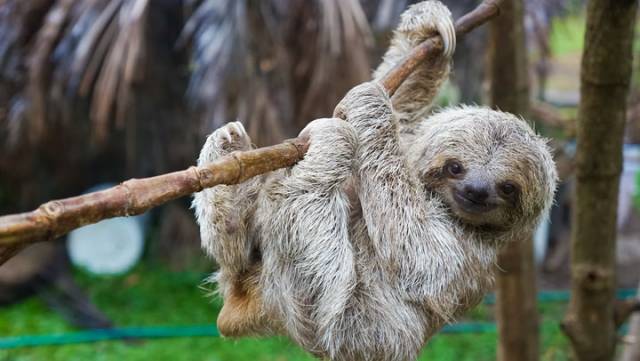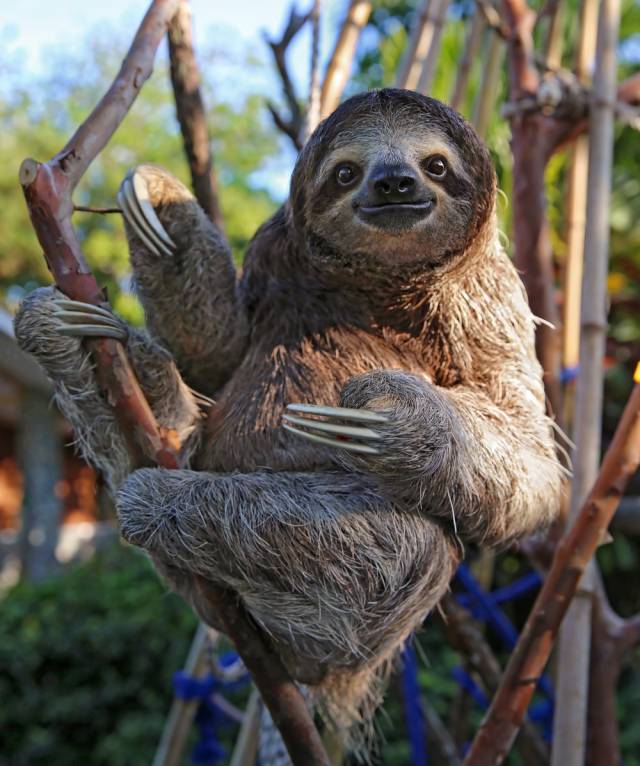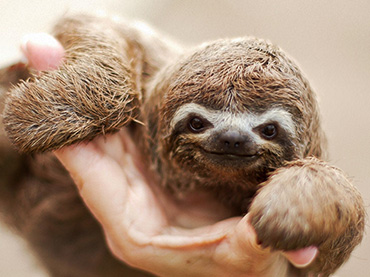If you are looking for a family-friendly, cuddly, and exotic pet, then you can get yourself a sloth. This creature is known to be easy-going and playful. It is also has a long life, often surviving for 30 years or more. Aside from that, it is unlikely to run away.
Although sloths make good pets for some families, there are also drawbacks to raising one. Just like other exotic pets, they are very expensive to care for. And, keeping one can be illegal in some places. Depending on the species, they also have special dietary requirements, which means pet owners will have to spend more.
Before you consider keeping a sloth, take time to consider these pros and cons:
Scroll down for videos


Pros
For some families and enthusiasts, keeping a pet sloth seems interesting. This is because these animals are way too cute, and they get along well with small kids. And since they move very slow, it is easy to keep an eye on them. Though they also make sounds, they are not that noisy. They are also unlikely to engage in hurtful behavior like chewing cushions and cloths or scratching furniture pieces. Because they are also very clean animals, living with them can be a very comfortable experience.
Cons
The drawbacks of keeping a pet sloth can be very important to discourage some people from buying one. Apart from the fact that it is difficult to buy them legally, their price can be significantly high. And when they become very ill, a highly-specialized and costly veterinary care might be required. Thus, if you really want to have one, getting exotic pet insurance is advised.

[dfp1]
Types of Sloth
There are two primary types of sloth – the two-toed and the three-toed. Both of them belong to different families.


This is a Hoffmann’s two-toed sloth.


Three-toed sloths are often found in the tropical rain forests of Central America.


Within these two primary categories, there are still four other species of three-toed sloths and two varieties of two-toed sloths. Their names are actually derived from the number of toes on their forelimbs. Generally, all sloth species have three toes on their hind legs. But, when it comes to diet, they also vary. While the three-toed sloth’s diet involves certain plant species and bugs, the two-toed species isn’t really picky.
Behavior
To own a sloth, special permits and licenses might be required.
In the wild, these furry creatures spend most of their time up in the trees, and suspended from branches. However, if they are kept as pets, they will behave the same. They will look for a place to climb and then hang from anything suitable. When they are in their natural environment, they will descend from the trees to defecate, which they do rarely. Still, they do give off a large volume of feces.
Because of their thick fur, parasites like ticks and mites easily get attracted, which causes them to scratch a lot. But, there is nothing to worry about because these parasites aren’t harmful to humans.
When they are still young, sloths often cling to their mothers. As pets, they will also show similar behavior and will happily love and embrace its owner. If properly cared for, these creatures can be very affectionate.
General Care

As part of sloth ownership, a highly-specialized health care might be required. In fact, other areas require exotic pet insurance coverage for households that keep sloths. Because of their playful nature, a pet sloth might need something to climb on that is able to support its weight. If you could not provide fake or real trees inside your home, you can install some metal frames or wooden bars instead.
Sloths are accustomed to areas with high temperatures. So, they find it difficult to adapt in temperate regions. These animals have a very slow metabolic rate, which means they couldn’t warm themselves in cold conditions. Hence, owners of sloths are required to provide a warm environment to ensure the comfort of their pets.
Legal Issues
Generally, sloths are considered exotic pets. This only implies that potential owners might have to comply certain requirements like permits and special licenses, as well as meet some conditions. Before you consider keeping a sloth as a pet, it is important that you check out any local legal requirements. Take note that these requirements vary from country to country. If you don’t want to pay large fines or suffer imprisonment, be sure to follow these rules.
Check out these videos of adorable and cuddly sloths
Here are other adorable animals you might want to keep as pets
Cute Pets Getting Ready for Dinner
Exotic Animals that are Raised as Pets


